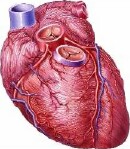New American Heart Association guidelines outline health care strategies for these patients
TUESDAY, April 21, 2015 (HealthDay News) — The American Heart Association (AHA) has issued guidelines for health care providers treating patients older than 40 with congenital heart disease. The guidelines were published online April 20 in Circulation.
There are now more adults with congenital heart disease than children with the disease, Ami Bhatt, M.D., lead author of the recommendations, said in an AHA statement. “These patients often have a sense that their heart has been ‘fixed’ and they don’t need follow-up,” said Bhatt, director of the Adult Congenital Heart Disease Program at Massachusetts General Hospital in Boston. “However, in adulthood they can develop complications from the underlying disease or the heart repairs that kept them alive as children. Therefore, these adults need lifelong cardiac care.”
The association’s new recommendations include: People over 40 with congenital heart disease should exercise, although it’s common for them to have a certain level of intolerance of physical activity; most of these people can be sexually active, although they should consult their doctor in certain situations, such as when they’re anxious about sexual activity or resuming it after a new problem or cardiac procedure; and erectile dysfunction drugs such as Viagra, Cialis, or Levitra are safe for many men with congenital heart disease unless they’re taking nitrates or their condition requires them to abstain from sexual activity. As for women, vaginal estrogen therapy can help those with vaginal dryness. Women who are thinking about taking hormone replacement therapy to deal with symptoms like hot flashes during menopause should be aware of a higher risk of venous thromboembolism during some cardiac procedures.
In addition, patients should be monitored by a cardiologist and keep records of their childhood diagnoses and treatments. “Patients should be proactive to ensure that their providers are well-versed in their disease and should respectfully encourage their providers to seek expert consultation if they are not,” Bhatt said.
Full Text
Copyright © 2015 HealthDay. All rights reserved.








